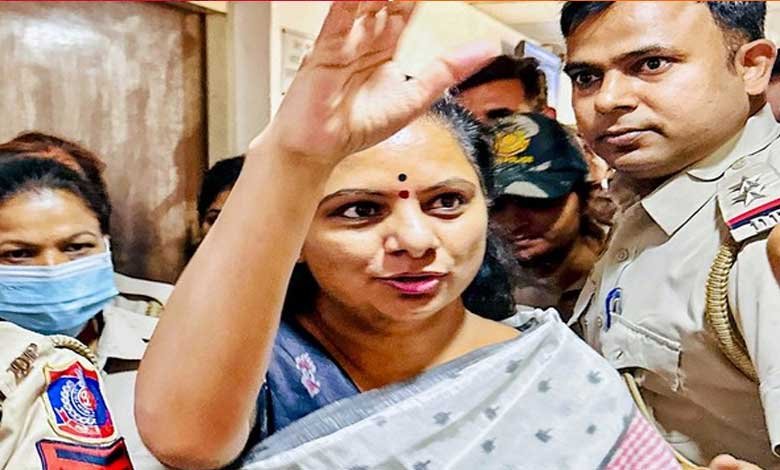Delhi High Court to Rule on BRS Leader K Kavitha’s Bail Plea in Excise Policy Case on July 1
The Delhi High Court is set to deliver its judgment on the bail petitions filed by Bharat Rashtra Samithi (BRS) leader K Kavitha in the CBI and ED cases related to the Excise Policy case on July 1, 2024.

New Delhi: The Delhi High Court is set to deliver its judgment on the bail petitions filed by Bharat Rashtra Samithi (BRS) leader K Kavitha in the CBI and ED cases related to the Excise Policy case on July 1, 2024.
The bench of Justice Swarna Kanta Sharma reserved the order on May 28, 2024, after hearing submissions from all parties involved.
Senior Advocate Vikram Chaudhari, Advocate Nitesh Rana, along with Advocates Mohit Rao and Deepak Nagar, represented K Kavitha. Advocate DP Singh appeared for the CBI, while Advocate Zoheb Hossain represented the Enforcement Directorate (ED).
The CBI opposed Kavitha’s bail plea, arguing that the investigation is at a crucial stage involving other public servants and private individuals. They asserted that releasing Kavitha on bail could hinder the investigation, especially since she fails to meet the ‘triple test’ standard established by Constitutional Courts.
The ED also opposed the bail, emphasizing that routine conditions for bail are insufficient in money laundering cases due to their trans-border nature and the accused’s potential to influence the investigation. The agency stressed that the advanced technology could allow the accused to obscure the money trail, rendering the investigation and trial ineffective.
Previously, the Delhi High Court issued notices to the ED and CBI regarding Kavitha’s bail petitions. Recently, the ED filed a supplementary prosecution complaint (chargesheet) in the Excise Policy money laundering case in Rouse Avenue Court, naming Kavitha and other accused, including Chanpreet Singh, Damodar, Prince Singh, and Arvind Kumar.
Kavitha’s bail plea highlighted her role as a mother, arguing that her minor child is under medical supervision due to the stress caused by the case. She claimed attempts were made to implicate her in the scandal by the ruling party at the Centre.
Kavitha’s plea stated that the ED’s case relied heavily on uncorroborated statements from an approver, witnesses, or co-accused under Section 50 of the PMLA, without any concrete evidence or documentation proving her guilt.
The plea further argued that Kavitha’s arrest violated Section 19 of the PMLA, as there was no corroboration of the alleged cash transaction or money trail, making the arrest order unjustified.
On May 6, the Rouse Avenue Court in Delhi dismissed Kavitha’s bail petitions in the CBI and ED cases. Kavitha was arrested by the ED on March 15, 2024, and by the CBI on April 11, 2024. The CBI sought her arrest to conduct custodial interrogation and uncover the larger conspiracy behind the Excise Policy formulation and implementation, as well as to trace the money trail and establish the roles of other accused individuals.
The CBI investigation stemmed from a report by the Delhi Chief Secretary in July, which found prima facie violations of the GNCTD Act 1991, Transaction of Business Rules (ToBR)-1993, Delhi Excise Act-2009, and Delhi Excise Rules-2010.
The ED and CBI allege that irregularities in the excise policy led to undue favours for license holders, waivers or reductions in license fees, and unauthorized extensions of L-1 licenses. The agencies claim that the beneficiaries diverted illegal gains to accused officials and made false entries in their accounts to evade detection, causing an alleged loss of Rs 144.36 crore to the exchequer.
The Delhi High Court’s upcoming judgment will be crucial in determining the future course of action in this high-profile case.
